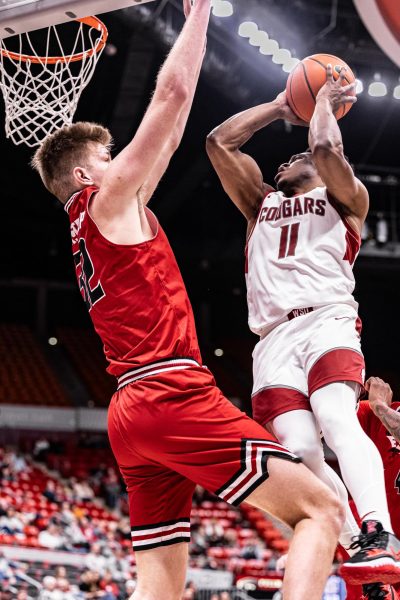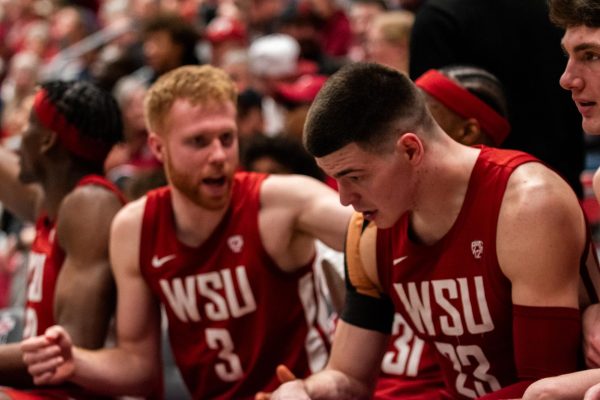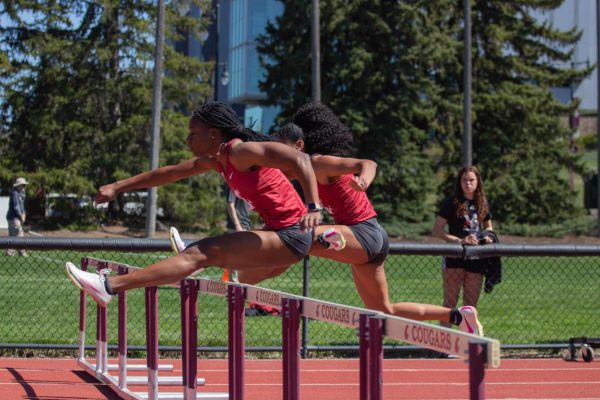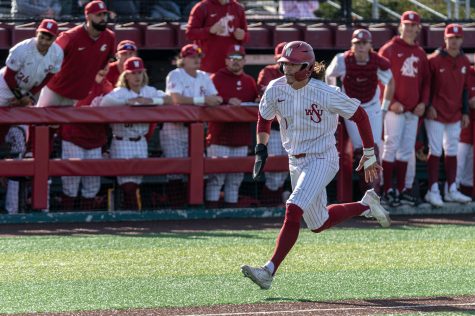WSU athletics and Title IX: Moving forward
February 5, 2016
The longstanding tradition of equal support for men’s and women’s athletics remains evident at Washington State University amid national focus and questions surrounding Title IX.
The Educational Amendments Act of 1972, Title IX stated: “No person in the United States shall, on the basis of sex, be excluded from participation in, be denied the benefits of, or be subjected to discrimination under any education program or activity receiving Federal financial assistance.”
For athletics, that brought a focus to women’s sports having the same opportunity and benefits as men’s sports. On Dec. 11, 1979, a three-part test was created for the Office of Civil Rights to evaluate each institution’s effectiveness in compliance with Title IX.
An institution complies with Title IX according to the OCR if one, the number of male and female athletes is proportionate to undergraduate enrollment numbers; two, institution has a history and continuing practice of expanding participation opportunities responsive to the developing interests and abilities of the underrepresented sex; or three, the institution is fully and effectively accommodating the interests and abilities of the underrepresented sex.
According to the Equity in Athletics Data Analysts for the 2014 fiscal year, Washington State had 10,168 male undergraduates to 10,086 female undergraduates, 0.4 off from a 50/50 split. By the same standing, athletics would be required to have a similar 50/50 split for men’s and women’s sports.
With the Cougar football program accounting for 102 male athletes according to the current roster on WSUCougars.com, the university has to work to balance out the numbers for women’s sports to remain in compliance with Title IX.
Deputy director of Athletics and Senior Women’s Adviser Anne McCoy has been involved with Cougar athletics since 2001. During her tenure she’s seen the culture of WSU continue to support a balance in men’s and women’s athletics that has led to continued compliance with Title IX.
“Honestly, in the time that I’ve been here and certainly the time that predates me, we’ve always wanted to have a way that we treat our sports and our coaches,” McCoy said. “I think that has been the culture for a long time at Washington State honestly. Which is refreshing and great to be a part of.”
Television Providing Growth for Women’s Sports
The creation of the Pac-12 Network on July 27, 2011, allowed a platform for both women’s and men’s sports to be shown to a wide ranging audience. For women’s sports, having the chance to be promoted, allowed schools like WSU to showcase their top-tier programs and gain recognition.
Pac-12 Commissioner Larry Scott has emphasized equal opportunity and growth during his tenure as head of the conference. Scott is also a member of the Women’s Sports Foundation executive committee and has made it one of his goals to see the advancement of women’s athletics within the conference.
“There’s still a lot of work to do to continue to promote the popularity of women’s sports and as a leader nationally,” Scott said in a phone interview. “I feel an obligation and commitment to be at the forefront of what we’re doing to promote women’s sports. Of the 850 events that we telecast on the Pac-12 Networks last year, over half are women’s sporting events. So I think that demonstrates the importance that we place on promoting women’s sports and the interest level.”
Women’s soccer — one of the most successful athletic programs WSU has produced over the past few years — and basketball are the two main women’s sports shown on the network.
As a result, Title IX has helped balance, albeit indirectly, upgrades for facilities and coaches at WSU in women’s and men’s athletics. Women’s soccer Head Coach Todd Shulenberger received a contract extension following his first season, after the Cougars made it back to the NCAA Tournament.
The WSU Board of Trustees also approved continued renovations to Lower Soccer Field that began in 2014. The renovations, which include additional seating and a press box, are intended to grow the program and allow for even more televised matches.
McCoy noted that Title IX does not impact which sports get renovations and attention, but that it might impact the timeline for when each sport gets upgrades to maintain balance.
A Fight Moving Forward
Michael McCann, Founding Director of the University of New Hampshire Law Sports and Entertainment Law Institute, believes Title IX will play a pivotal role in determining compensation for student athletes, both male and female.
“Title IX is an important area of sports law,” McCann said. “It will be play a key role in how student-athletes rights are impacted by the various litigations against the NCAA and member schools and conferences over compensation for student-athletes.”


















